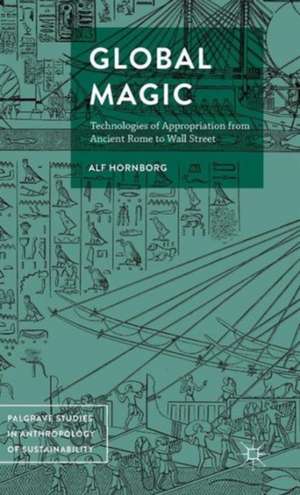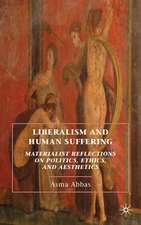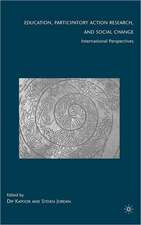Global Magic: Technologies of Appropriation from Ancient Rome to Wall Street: Palgrave Studies in Anthropology of Sustainability
Autor Alf Hornborgen Limba Engleză Hardback – 8 mar 2016
| Toate formatele și edițiile | Preț | Express |
|---|---|---|
| Paperback (1) | 480.62 lei 6-8 săpt. | |
| Palgrave Macmillan US – 2 mar 2017 | 480.62 lei 6-8 săpt. | |
| Hardback (1) | 387.20 lei 6-8 săpt. | |
| Palgrave Macmillan US – 8 mar 2016 | 387.20 lei 6-8 săpt. |
Preț: 387.20 lei
Nou
Puncte Express: 581
Preț estimativ în valută:
74.10€ • 75.88$ • 61.64£
74.10€ • 75.88$ • 61.64£
Carte tipărită la comandă
Livrare economică 18 martie-01 aprilie
Preluare comenzi: 021 569.72.76
Specificații
ISBN-13: 9781137567864
ISBN-10: 1137567864
Pagini: 224
Ilustrații: X, 201 p.
Dimensiuni: 140 x 216 x 13 mm
Greutate: 0.4 kg
Ediția:1st ed. 2016
Editura: Palgrave Macmillan US
Colecția Palgrave Macmillan
Seria Palgrave Studies in Anthropology of Sustainability
Locul publicării:New York, United States
ISBN-10: 1137567864
Pagini: 224
Ilustrații: X, 201 p.
Dimensiuni: 140 x 216 x 13 mm
Greutate: 0.4 kg
Ediția:1st ed. 2016
Editura: Palgrave Macmillan US
Colecția Palgrave Macmillan
Seria Palgrave Studies in Anthropology of Sustainability
Locul publicării:New York, United States
Cuprins
1. The Ecology of Things: Artifacts as Embodied Relations
2. Land, Energy, and Value in the Technocene
3. The Magic of Money
4. Empires, World-Systems, and Expanding Markets
5. Money as Fictive Energy: Unraveling the Relation between Economics and Physics
6. Agency, Ontology, and Global Magic
7. The Political Ecology of Technological Utopianism
8. Redesigning Money to Curb Globalization and Increase Resilience
9. Conclusions: Money, Technology, and Magic
2. Land, Energy, and Value in the Technocene
3. The Magic of Money
4. Empires, World-Systems, and Expanding Markets
5. Money as Fictive Energy: Unraveling the Relation between Economics and Physics
6. Agency, Ontology, and Global Magic
7. The Political Ecology of Technological Utopianism
8. Redesigning Money to Curb Globalization and Increase Resilience
9. Conclusions: Money, Technology, and Magic
Notă biografică
Alf Hornborg is an anthropologist and Professor of Human Ecology at Lund University, Sweden.
Textul de pe ultima copertă
This book explores the conventional modern understanding of technology and the idea that technological progress is illusory, deriving from a local, European perspective on what has historically been a global process of accumulation and asymmetric resource transfers. Globalized technologies are based on differences in wages and the prices of natural resources in different parts of the world. Their magic consists of enabling affluent people to exert power over others while hiding the extent to which this power is dependent on the public conceptions about technology. The reconceptualization of globalized technology proposed here will benefit current deliberations on sustainability, as it advocates fundamental transformations of the economy, rather than technological utopianism.





















